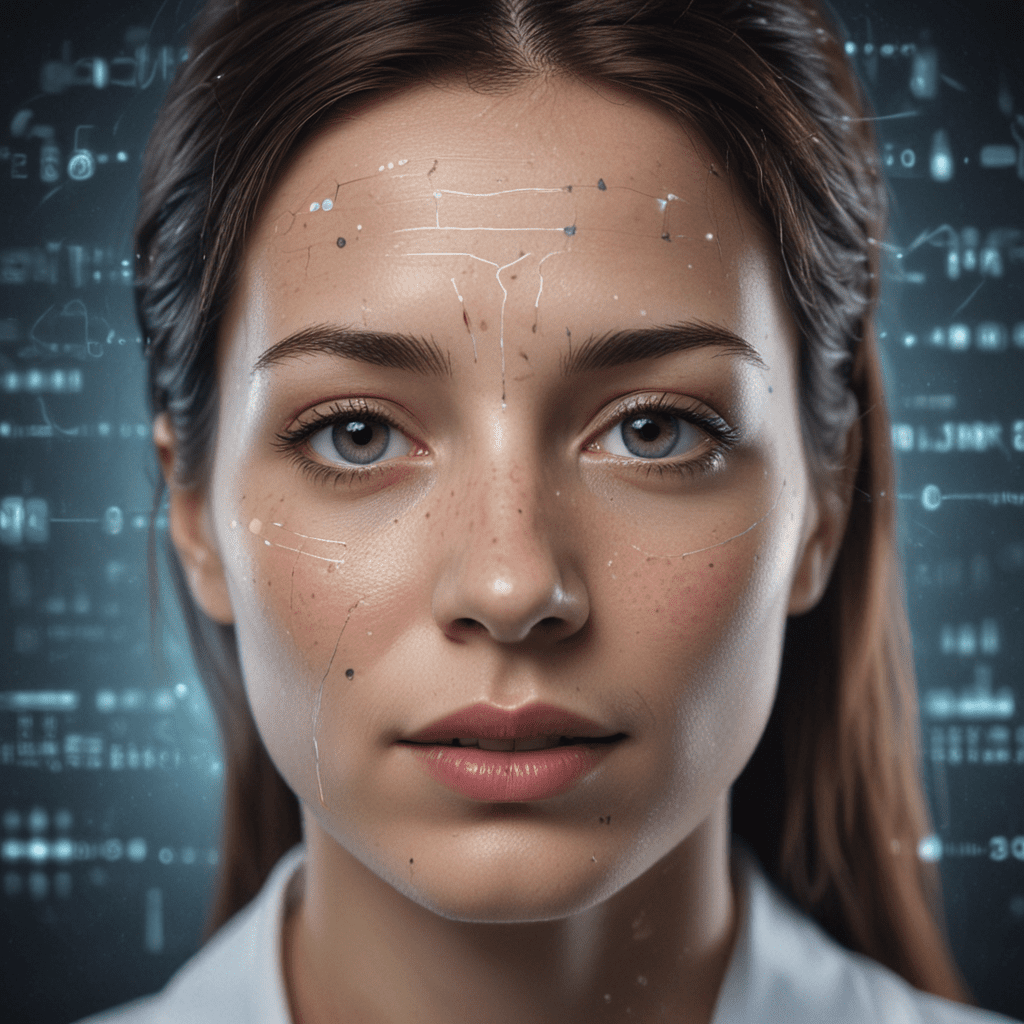
I. Introduction
Facial recognition, a rapidly evolving technology, has the potential to revolutionize personalized medicine by enabling precise and tailored healthcare. Personalized medicine, which focuses on individual genetic, environmental, and lifestyle factors, offers the promise of more effective and targeted treatments. The integration of facial recognition with personalized medicine has opened up new avenues for disease diagnosis, treatment, and monitoring.
II. Applications of Facial Recognition in Personalized Medicine
Facial recognition technology has found significant applications in personalized medicine, particularly in the areas of disease diagnosis and precision therapy.
A. Facial Analysis for Disease Diagnosis
Facial recognition algorithms can analyze subtle changes in facial features, expressions, and skin texture to detect early signs of diseases such as diabetes, heart disease, and cancer. By identifying patterns and abnormalities invisible to the naked eye, facial analysis offers a non-invasive and cost-effective method for early disease detection and risk assessment.
B. Biometric Identification for Precision Therapy
Biometric identification using facial recognition can ensure precise and individualized treatment plans. Unique facial features can be linked to specific genetic profiles, allowing healthcare providers to identify the most appropriate therapies based on an individual's genetic makeup, lifestyle, and environmental factors. This precision approach reduces the risk of adverse reactions and optimizes treatment outcomes.
III. Benefits of Facial Recognition for Personalized Treatment
Facial recognition offers numerous benefits for personalized treatment, including improved diagnostic accuracy and enhanced patient monitoring:
A. Improved Diagnostic Accuracy
Facial recognition algorithms have the ability to detect subtle changes in facial features that may indicate underlying health conditions. This enhanced diagnostic accuracy enables healthcare providers to identify diseases at an earlier stage, leading to more effective and timely interventions.
B. Enhanced Patient Monitoring
Facial recognition technology can be used for continuous and remote monitoring of patients' health status. By analyzing facial expressions and skin texture, healthcare providers can monitor for changes that may indicate changes in a patient's condition, allowing for prompt adjustments to treatment plans.
IV. Challenges and Limitations
Despite its potential benefits, facial recognition in personalized medicine faces certain challenges and limitations:
A. Privacy Concerns
The use of facial recognition data raises privacy concerns, as it involves collecting and storing sensitive biometric information. It is essential to implement robust data security measures and obtain informed consent from patients to ensure the responsible and ethical use of facial recognition.
B. Algorithmic Bias
Facial recognition algorithms may exhibit bias based on factors such as race, gender, or age. This can lead to incorrect or discriminatory diagnoses, highlighting the need for careful algorithm development and validation to mitigate bias and ensure fair and equitable healthcare.
V. Ethical Considerations
The application of facial recognition in personalized medicine requires careful consideration of ethical implications:
A. Informed Consent
Patients must be fully informed about the purpose, benefits, and risks of using their facial recognition data for medical purposes. Informed consent is essential to respect patient autonomy and protect their privacy.
B. Data Security
The storage and use of facial recognition data pose significant data security risks. Robust security measures must be implemented to prevent unauthorized access, misuse, or breaches that could compromise patient privacy and safety.
VI. Future Directions
The future of facial recognition in personalized medicine holds promising advancements:
A. Advances in Artificial Intelligence
Continued advancements in artificial intelligence (AI) will enhance facial recognition algorithms, improving their accuracy and reliability for disease diagnosis and monitoring. AI can also enable real-time analysis of facial data, facilitating prompt interventions.
B. Integration with Other Technologies
Facial recognition can be integrated with other technologies, such as wearable health devices and AI-powered medical diagnostic tools, to create a comprehensive healthcare system that provides personalized and holistic care.
VII. Conclusion
The integration of facial recognition into personalized medicine is a significant advance that has the potential to transform healthcare. By enabling precise disease diagnosis, precision therapy, and enhanced patient monitoring, facial recognition empowers healthcare providers to tailor treatments to individual needs, leading to improved patient outcomes and more efficient healthcare delivery. However, it is imperative to address challenges related to privacy, bias, and ethics to ensure the responsible and equitable use of facial recognition in personalized medicine.
FAQs
Q: How accurate is facial recognition for disease diagnosis?
A: Facial recognition algorithms have achieved high accuracy in detecting subtle changes in facial features associated with various diseases. The accuracy may vary depending on the disease, the algorithm used, and the quality of the input data.
Q: Is facial recognition a reliable method for patient monitoring?
A: Facial recognition technology can provide reliable and continuous monitoring of patients’ health by analyzing facial expressions, skin texture, and other indicators of health status. This allows for timely detection of changes in a patient’s condition.
Q: What are the privacy concerns associated with facial recognition in healthcare?
A: Facial recognition data is considered sensitive biometric information, and its collection and use raise privacy concerns. Robust data security measures and informed consent from patients are essential to mitigate these concerns.
Q: How can we address algorithmic bias in facial recognition?
A: To minimize algorithmic bias, developers must ensure that facial recognition algorithms are trained on diverse datasets and thoroughly tested to prevent incorrect or discriminatory diagnoses based on factors such as race, gender, or age.
Q: What is the future of facial recognition in personalized medicine?
A: Facial recognition technology will continue to advance with improvements in AI and its integration with other healthcare technologies. This will lead to even more accurate diagnoses, real-time monitoring, and personalized treatment plans tailored to each patient’s unique needs.


